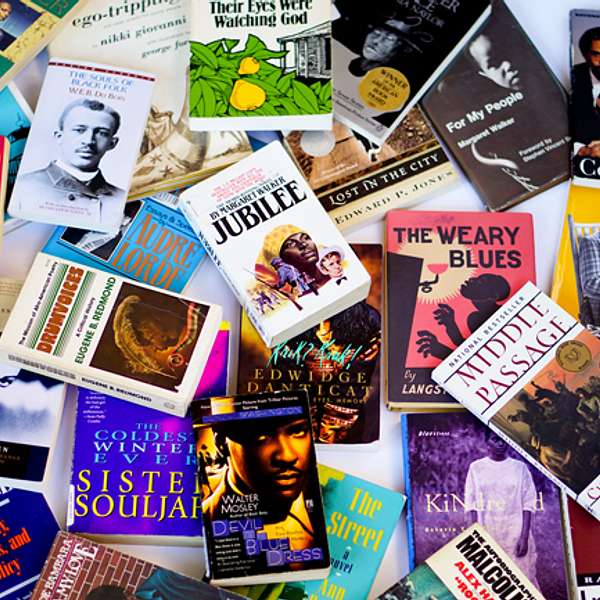
Remarkable Receptions
A podcast about popular and critical responses to African American novels, artistic productions, and more.
Remarkable Receptions
Read black novels, find Harriet Jacobs’s legacy -- Elizabeth Cali
Among the most taught, most discussed, most notable novels by Black women, we can trace Harriet Jacobs’s legacy.
Episode by Elizabeth Cali
Read by Gigi Monroe
It’s worth asking, is the division between African American autobiography and novels so stark? Where do the seeds of one flower in the next?
One foundational African American book reveals a bridge between autobiography and fiction: Harriet Jacobs’s 1861 slave narrative Incidents in the Life of a Slave Girl. The book has made an indelible imprint on some of the most prominent African American novelistic writing of the last two centuries.
You’re listening to Remarkable Receptions – a podcast about popular and critical responses to African American novels.
Read Harriet Jacobs’s Incidents after reading more recent novels about Black girls and women, and you might find yourself saying, this feels familiar. Resonant quotes, key turning points, critical locations – all from Harriet Jacobs’ Incidents – also appear at crucial moments in 20th and 21st century African American novels.
Open Colson Whitehead’s 2016 novel The Underground Railroad, and you’ll find the main character Cora on the verge of contemplating escape from slavery. She’s torn: stay put as her grandmother did, to ward off threats of potentially greater terror in the unknown? Or, run toward an imagined freedom, as her mother did.
Cora’s deliberation mirrors that of Harriet Jacobs. Her grandmother stayed put while resisting enslavement in myriad ways, eventually securing relative freedom in her home region of North Carolina. Her Uncle Benjamin ran, was caught, ran again, found freedom. Jacobs ran. So did Cora.
Follow Cora’s escape from a Georgia plantation to a cramped attic hideout in North Carolina and you’ll find yourself recalling Jacobs’s hiding place in her grandmother’s attic, the garret, 7 feet by 9 feet, only 3 feet high, looking out a narrow loophole into the daylight, contemplating the next steps to freedom. Read Whitehead, find Jacobs’s legacy.
Sit down with Toni Morrison’s Beloved and Sethe’s devastating statement “being alive was the hard part” recalls Jacobs’s words “I had rather live and die in jail, than drag on […] through such a living death.”
Beloved’s focus on three generations of Black women’s experiences of slavery and its afterlife also signals the broad literary influence of Incidents in the Life of a Slave Girl on African American fiction. Read Morrison, find Jacob’s legacy.
Jacobs’s portrayal of Black girls’ and women’s experiences in and out of enslavement made space for their stories in the 19th century. Incidents laid the foundation for an outpouring of Black women’s writings to come, including their fiction.
Among the most taught, most discussed, most notable novels by Black women, we can trace Jacobs’s legacy. It is found in stories that address the experiences of Black girls and women with seriousness, depth. In Jubilee and Their Eyes Were watching God. In Sula and The Bluest Eye. In The Women of Brewster Place and The Color Purple.
Read Black novels and, remarkably, you just might be reading something of Harriet Jacobs, too.
******************************************
This episode was written by Elizabeth Cali. The episode was edited by Howard Rambsy.
******************************************
This podcast, Remarkable Receptions, is part of the Black Literature Network, a joint project from African American literary studies at Southern Illinois University Edwardsville and the History of Black Writing at the University of Kansas. The project was made possible by the generous support of the Mellon Foundation. For more information, visit blacklitnetwork.org.